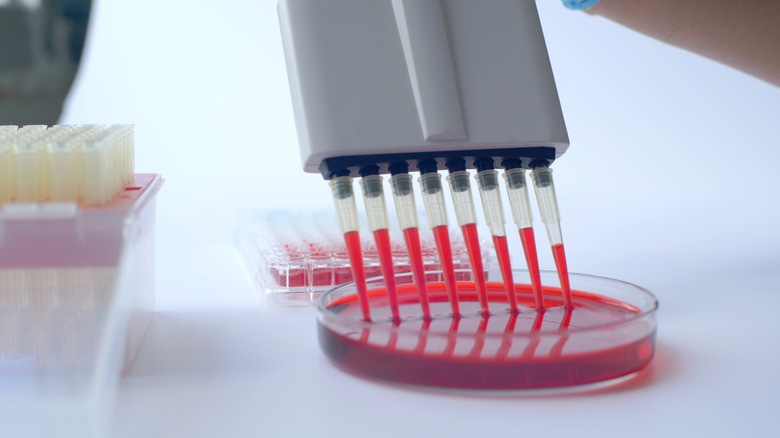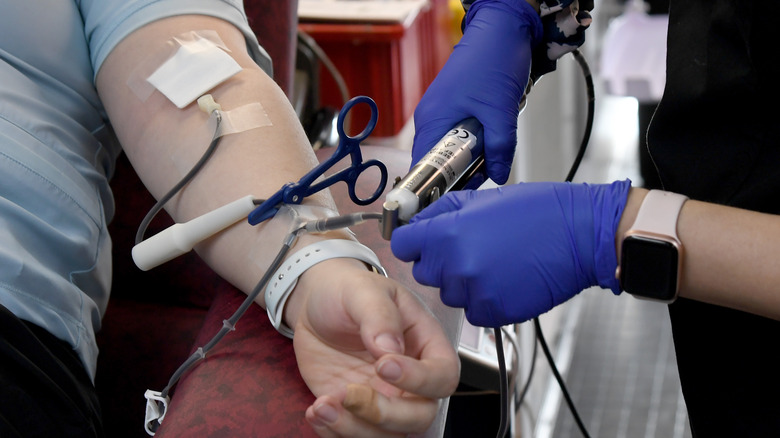What Is The Rarest Blood Type?
Blood types seem straight-forward. As the American Red Cross explains, blood groups are determined first through the presence (or lack) of antigens on the surface of red blood cells. These antigens are known as either "A" or "B" and they are the substances that set off immune reactions when the body is under attack. People with A blood have A antigens on the surface of their red blood cells while their B antigens are in their plasma. Those with B blood are in the reversed situation. People with AB blood have both antigens on the surface of their cells while those with O have neither, both antigens being found in the plasma instead.
Discovery explains, however, that there are more than 30 blood types currently recognized by the International Society of Blood Transfusions. Most of these designations involve enzymes and compounds not covered by the negative and positive ABO system and are generally viewed as additional information that can be added to a person's overarching blood type. It is more important to know a person's antigen type (their ABO type) and their Rh factor, meaning if their blood is positive or negative for the Rhesus D antigen.
But this is where another hiccup can occur. In some cases — incredibly rare cases — a person's blood is neither positive or negative. Instead, it is Rhnull, and it is a blood type so rare it was once thought impossible.
The blood type that was thought to be impossible
Today, Rhnull blood is considered "the golden blood" according to Dr. Thierry Peyrard, Director of the National Immunohematology Reference Laboratory in Paris. He spoke to Mosaic Science and explained that the blood type was thought impossible until 1961 when it was identified in an Aboriginal Australian woman (via The Lancet). Since then, only 43 people have been found with Rhnull blood and only nine of those people are known to be active blood donors (via Discovery).
Dr. Peyrard calls Rhnull blood "golden" because it is a universally acceptable blood type and perfect for those who have other rare types of blood. These patients may be AB-, a type shared by only .6% of Americans (via Medical News Today), or they may have a blood type made rare by factors that fall into one of the 30+ blood designations outside the standard ABO groups. Whatever the reason, Rhnull is the best chance for people with rare blood types when they need a transfusion, short of someone else with their exact same blood type. Any other type may trigger an immune response thanks to those handy little antigens that define us all.


